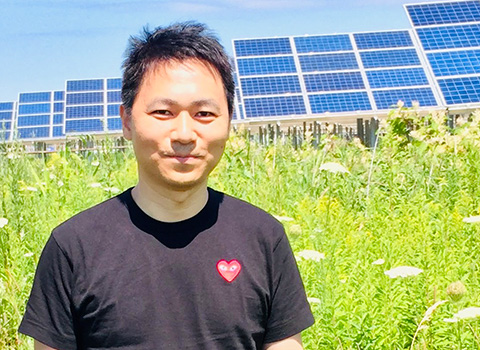Graduate School ofIntegrated Sciences
for
Global Society
- DEGREE
-
- Master of Arts / Science
- Doctor of Philosophy / Science
- CAREERS
-
- Universities, research institutions and public service
- DEPARTMENT
-
- Integrated Sciences for Global Society
- COURSES
-
- Comprehensive Earth Sciences
- Comprehensive Science of Biological Environment
- International Cooperation, Security and Safety
- Social Diversity and Coexistence
- Language, Media and Communication
- Comprehensive East Asian and Japanese Studies
- APPLICATION PERIOD
-
-
Master’s ProgramOctober, every year; April Admission,
May, every year; October Admission -
Doctoral ProgramOctober, every year; April Admission,
May, every year; October Admission -
Research StudentsNovember, every year; April Admission,
May, every year; October Admission
-
Master’s ProgramOctober, every year; April Admission,
OVERVIEW
1. Integrated Interdisciplinary Approach to examine problems holistically
The goal of ISGS is to train students to be advanced researchers or professionals with integrated interdisciplinary education. ISGS offers a systematic curriculum in which students learn the basics of interdisciplinary research methods and from which they can choose subjects with multiple specialized fields according to their interests. Additionally, students benefit from an advisory committee consisting of multiple faculty members with various fields of specializations.
2. Advanced expertise to identify the root cause of problems
What lies beneath “integrated interdiscipline” is advanced expertise. Analytical skills built upon advanced expertise are vital in studying the root cause of complex problems in society. ISGS faculty members specialize in a variety of fields, including earth sciences, biology, political science, history, archeology, literature, linguistics, sociology, anthropology, religious studies, international relations theory, and economics, etc. Students can acquire the expertise necessary to become researchers or professionals.
3. Communication skills and leadership to collaborate with diverse people
Communication skills are not merely about convincing others of your ideas in a simple way, but are also about understanding others. In order to solve some issues, leadership is also necessary to bring people of various fields together and ensure success. Students can enhance their communication skills through discussions and debates with peers from different countries, fields of specialization, and interests.
Student’s Voice
- What is your research about?
- I have been working in the field of renewable energy for more than 15 years, both in China and Japan, and experienced the blossoming, scaling and continuous development of the solar PV industry. My PhD research focuses on the impact of corporate innovation and government innovation on the development of China's solar PV industry. In addition to theoretical research, I will conduct more fieldwork, face-to-face interviews with entrepreneurs and government officials to enrich my research with first-hand information. I hope my study is not only a rational review of the development of China's renewable energy industry in the past 20 years, but also a useful reference for the future development of China's carbon neutral strategy.
- What is an advantage of Kyushu University?
- Kyushu University has a wealth of study resources, including an excellent team of supervisors and various hardware facilities. Here I can find interesting research directions and sufficient resources to support the study.
Kyushu University also has a very international faculty and students, and you can interact with students and teachers from all over the world during your studies.

(From China)
GET MORE INFORMATION
Related Contact: ISGS Student Affairs Division
E-mail: jbkkyomugs@jimu.kyushu-u.ac.jp
